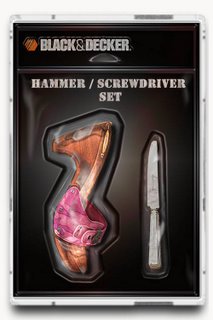When the liner was holed by an iceberg on April 14, 1912, Helen Churchill Candee, a first class passenger and a divorced author, was escorted by Edward Kent to a lifeboat.
As they said goodbye, she handed him a silver brandy flask and a miniature portrait of her mother.
She asked him: "Take these for me; you know we women have no pockets."
In her 36-page memoir, written in green ink, she recalled: "I held out to him a silver flask and a miniature of my mother. But Kent drew back his hands. Angered, I commanded: 'Take them.' His eyes appealed to mine. He took my treasures (though silently) against his (prophetic) soul's prophecy and slipped out of the cabin (and disappeared). We never saw him again."
Mr Kent, 60, an American architect, remained on board, helping women and children.
When his body was recovered, the flask, which sold for £34,000 at auction last year, and the miniature were still in his jacket pocket.
Mrs Churchill Candee, who died in 1949, aged 90, was 53 when she boarded the liner. She was one of 700 people to survive of the 1,523 passengers who set out for New York from Southampton.
She was sailing to America to visit her son Harold who had been injured in a plane crash. Her friendship with Mr Kent helped take her mind off her son's accident, she recalled.
The couple's affection for each other was mirrored by Leonardo DiCaprio and Kate Winslet in the film Titanic.
In the memoir, which has been with beneficiaries of her estate, Mrs Churchill Candee recalls: "The dress declared the tragedy. On every man and woman's body was tied the sinister white lifebelt, the last response at sea.
"Some were over women's evening gowns, some over men's bathrobes, and above each was a pale face of courage."
The manuscript, the miniature and other memorabilia are to be auctioned by Henry Aldridge and Sons in Devizes, Wilts, on April 29. The items are expected to fetch £25,000.
By Richard Savill










